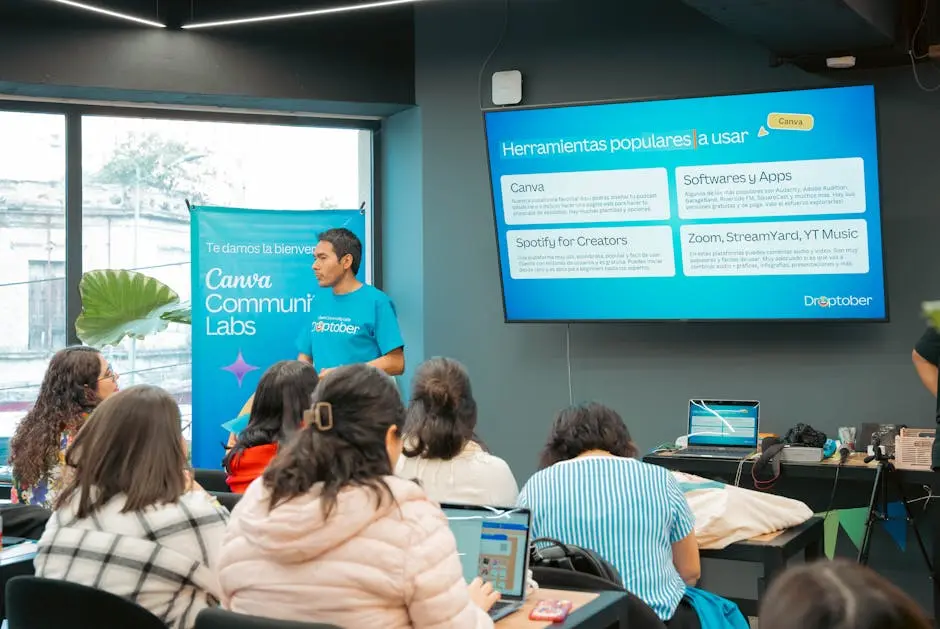In today’s competitive educational landscape, student success is no longer solely reliant on traditional learning methods. Instead, innovative approaches, such as speaking engagements, are proving to be significant catalysts for unlocking a student’s potential. This blog explores how these interactions not only enhance learning but also boost confidence, networking skills, and overall engagement in education.
The Role of Speaking Engagements in Modern Education
Speech engagements act as a link between abstract knowledge and practical application. They offer students exclusive chances to engage with professionals from the industry, gaining a deeper insight into their areas of specialization.
These interactions allow students to witness firsthand the applications of what they learn in school. For instance, an environmental science student can meet with a specialist in climate change. Such immediate human contact is able to clarify complex theory and instill a passion for learning, leading students to take what they are studying more seriously.
Furthermore, speaking opportunities encourage critical thinking since students are often required to participate in debate and ask challenging questions. Such an interaction not only sharpens their analytical skills but also encourages a culture of curiosity since students are rewarded for being inquisitive, and learning becomes a thrilling adventure.
Boosting Confidence and Communication Skills
Engagements with speakers allow students to practice communication skills in a safe and encouraging environment. This experience not only boosts their confidence but also prepares them for future presentations and discussions.
When students participate in speaking events, they learn to articulate their thoughts and ideas clearly. This skill is invaluable not only in academic settings but also in their professional lives. The ability to convey a message effectively can set them apart in job interviews or workplace scenarios.
Additionally, by engaging directly with speakers, students experience diverse communication styles. They can adapt their own style while observing how effective speakers handle questions, manage audience engagement, and convey complex information simply. These insights can refine their own approach to speaking.
Networking: Building a Community for Future Opportunities
Speaking events create valuable networking opportunities. Students can connect with professionals and peers, building a community that can support their career aspirations long after the engagement is over. Check out Laddering Your Success’ various services that we provide for schools, and non-profits!
These connections are more than mere introductions; they often evolve into mentorships. Students who actively engage during panels or Q&A sessions may find themselves with industry mentors willing to provide guidance as they transition from education to the workplace. Such relationships can open doors to internships or job placements.
The benefits of these networking opportunities extend beyond immediate career aspirations. Students develop social skills that are critical in any professional environment. They learn the importance of relationship-building and create a professional network that will benefit them throughout their careers.
Encouraging Lifelong Learning and Curiosity
The diverse topics covered in speaking engagements can reignite curiosity and inspire students to pursue knowledge beyond their curriculum, encouraging a lifetime of learning and exploration.
After attending a talk on technology in education, for example, students might be motivated to explore coding or engage in sustainability projects. This spark of interest can lead to them exploring academic fields they had never considered before, broadening their horizons and encouraging exploration.
When speakers share their own stories of learning and growth, it provides relatable examples that inspire students to take ownership of their educational journeys. The realization that learning doesn’t stop outside of the classroom encourages a mindset geared towards constant improvement.
Measuring the Impact of Speaking Engagements
Assessing the effectiveness of speaking engagements can be challenging. However, surveys and feedback can provide insights into how these events influence student learning and motivation, paving the way for improvement in program offerings.
Institutions that invest in regular assessment can tailor their speaking engagement programs to better meet student needs. By understanding which topics resonate most or which speakers had the most significant impact, they can curate future events that maximize student engagement and success.
Tracking post-engagement outcomes, such as increased participation in relevant courses or student projects, is crucial in understanding the true influence these events have. This data can help convince stakeholders of the importance of fostering speaking engagements as a fundamental part of the educational experience.
Harnessing the Power of Engagements for Success
As we’ve explored, speaking engagements lift students to new heights by sparking interest, building essential skills, and improving their career prospects. Encouraging students to embrace such opportunities can lead to rich educational experiences that resonate well beyond the classroom. The influence of these engagements is profound, reminding us of the power of shared knowledge and inspiration in shaping successful futures.








